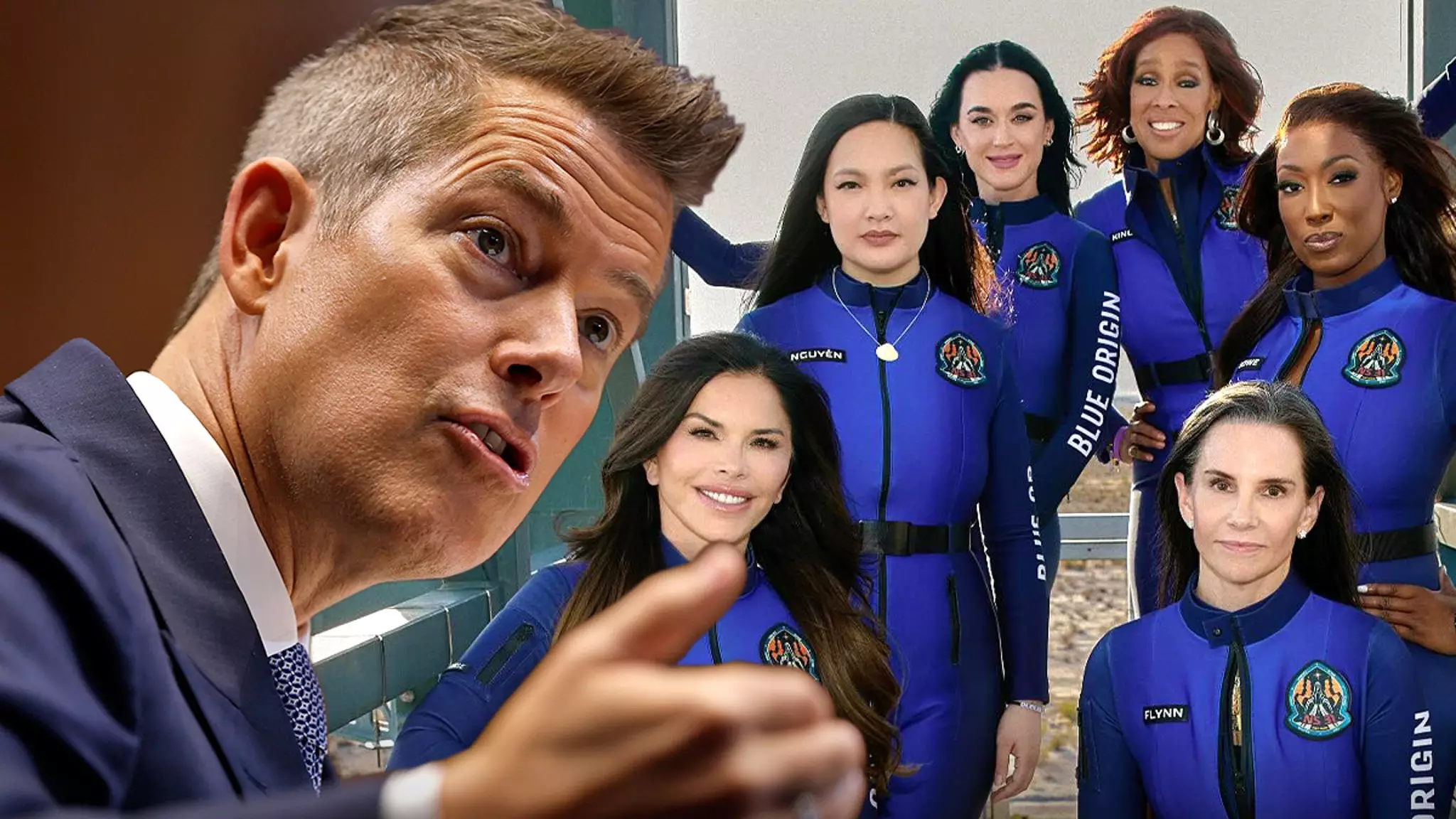The recent venture by a group of high-profile women—Katy Perry, Lauren Sánchez, Gayle King, Aisha Bowe, Amanda Nguyễn, and Kerianne Flynn—brought glimmering headlines and jaw-dropping photos of their brief voyage into the cosmos aboard Blue Origin. Advertised as a leap for humanity, showcasing diversity and courage, the journey swiftly morphed into a contentious topic. U.S. Transportation Secretary Sean Duffy piped in with a critical note, stating that these celebrated individuals don’t actually qualify as astronauts by federal standards; they lack the essential activities performed during their flight that contribute to space safety.
On many fronts, this juncture represents a fascinating interplay between adventure, social recognition, and a burgeoning subculture of commercial space tourism. The U.S. Federal Aviation Administration (FAA) indeed maintains strict guidelines for astronaut designation, which were refined in 2021 to necessitate demonstrable contributions to public safety during flight. Duffy’s comments inevitably question whether flashy 11-minute excursions constitute meaningful experiences or are merely acidic humor in the face of serious space exploration.
Glitz or Grit: The Broader Conversation
The audacity of these celebrities to ascend into the ether burst forth amidst noisy social media exchanges marked by an avalanche of criticism. Comparisons to “space Barbie” fantasies abound. Critics such as Emily Ratajkowski denounce it as a “disgusting” misuse of resources, while Olivia Munn pointedly questioned the ethics of such a lavish venture when many struggle to afford basic needs. Duffy’s remarks resonate with this discontent; the idea of celebrated glamour in space obscures the pressing struggles faced by average citizens. Anyone paying attention cannot ignore this glaring disconnect.
However, let’s dive deeper than the surface reactions. Celebrity space travel reveals underlying themes of privilege in the modern age. The opportunity to touch the stars—albeit momentarily—inevitably raises queries about who gets to experience these ethereal vistas. Amidst a backdrop of environmental concerns and escalating costs of living, one cannot simply brush off the sense of elitism that hangs heavily in the air. Yet, does that diminish the actual marvel of spaceflight? This paradox remains nebulous.
Redefining Astronauts in the Age of Commercial Space Travel
Duffy’s remarks challenge the definitions surrounding astronaut qualifications today. Traditional astronaut training prioritizes rigorous physical and mental preparation, creating a benchmark that these joyriders seem to sidestep. Yet, one cannot ignore that in beating the odds and reaching a substantial altitude of 62 miles—beyond the internationally recognized line of space—they certainly achieved something. The FAA did express the need to recalibrate definitions and recognize the wider array of individuals aiming for the stars.
As society transitions into an era where space tourism is becoming increasingly viable, the lines between achievement and spectacle become blurred. How do we classify those who bravely explore yet lack the credentials traditionally associated with the honor? Is an adventure without rigorous responsibilities in an actual spacecraft somehow less meaningful? These questions hover, refracting the technicolor lens we use to perceive human exploration today.
The Ripple Effect of Privilege in Space Tourism
Although many took issue with the wealth-borne privileges associated with their journey, some—like Jessica Alba—argued for a reallocation of blame, recommending a focus on systemic issues rather than individual actors. This perspective is crucial. As we navigate a myriad of problems, from climate change to economic inequality, blaming a group of well-off space adventurers may misplace responsibility.
While Gayle King defended her trip by advocating for Blue Origin’s broader objectives—a call to educate the public on advancements in space technology—this too throws a wrench in the discourse. The adventure was indeed superficial yet layered with complex implications. Are we prepared to accept a future where exploration becomes an exclusive arena for the affluent? The answer is likely a resounding “no,” yet we must reckon with the space race’s evolving landscape.
Engaging in this dialogue compels our society to rethink not just who gets to become an astronaut, but also what it means to partake in exploration and to stake claims to the future—which, whether we like it or not, hovers above us like unrelenting stars.

